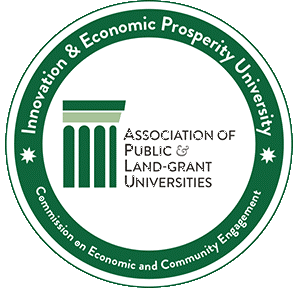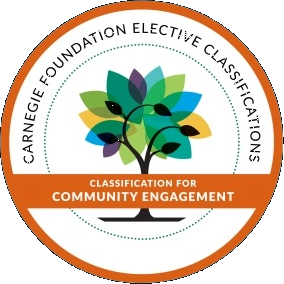2025 Recipients
Community-Engaged Research
Patricia Guillante, College of Engineering
In the remote expanse of rural Alaska where harsh artic conditions exist, Alaskan Native communities face significant challenges related to energy insecurity, primarily due to outdated, overcrowded, and inefficient housing. These challenges are exacerbated by high electricity prices (nearly five times the U.S. average). This project aims to address energy insecurity through a community-based approach, bringing together researchers and Alaskan Native communities to develop sustainable solutions that can improve energy efficiency and indoor air quality, and enhance housing resilience. This collaborative effort also aims to reduce energy costs and help local residents to take an active role in shaping their housing conditions.
Community-Engaged Service and Practice
Jia Bin, College of Communication Arts and Sciences
Jia Bin brings a unique perspective to her work as a researcher, advocate, and, most importantly, a person who stutters. Combining her personal experiences and her professional expertise, Bin creates spaces where people who stutter feel valued, understood, and supported. Born and raised in China, she leads numerous support groups at both local and international levels, organizes educational events on stuttering-related topics, and conducts awareness campaigns in various community and academic settings to foster inclusivity and reduce stigma. Through her leadership, educational initiatives, and advocacy, Bin is breaking down barriers, challenging stereotypes, and inspiring others to embrace diverse voices.
Community-Engaged Teaching and Learning
Kara Haas, College of Education
Kara Haas has partnered with teachers across Michigan on community-based projects. She served as a graduate research assistant with Teaching Science Outdoors‒Urban Partnerships, which fostered a learning community, encouraging teachers in Lansing and Detroit to work with one another and their schoolyards to connect their curriculum with local phenomena. Haas was a program coordinator for the Kellogg Biological Station K-12 Partnership, which provides teachers in-depth exposure to environmental science research and training to teach inquiry-based science at the elementary and secondary levels. She created the Michigan Raptor Teaching Network, which supports K-12 educators in sharing the science of raptor migration with Michigan students.









